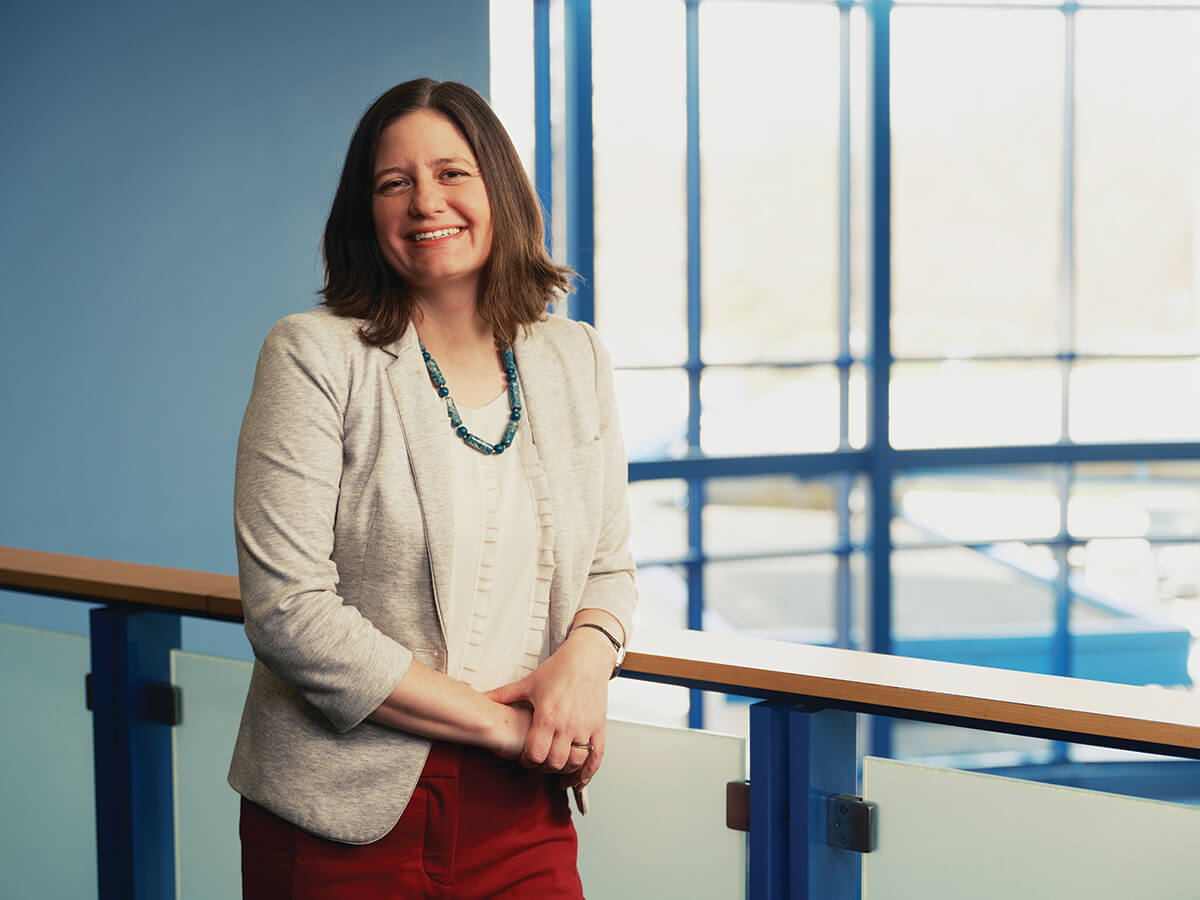GameChangers
Amy Greensfelder Facilitates Free Mental Healthcare for Any Marylander in Need
The executive director for Pro Bono Counseling oversees a team that matches residents with limited or no health insurance to an appropriate counselor for free ongoing therapy sessions.

While Amy Greensfelder was an undergraduate theology student—with the intent to eventually become a pastor—her career took an unexpected turn.
“I realized I was agnostic,” she says.
But that “aha” moment was soon followed by another when a mentor suggested she consider a related career in social services. So, after graduating in 2007, Greensfelder worked as an immigration counselor before becoming a caseworker with refugees in Nairobi, Kenya.
“As part of my work, I’d ask people why they’d left their home countries they could never return to, while also seeing the impact of hearing that trauma among my colleagues,” says Greensfelder. “There was pain on both sides and not a lot of resources for either group. Through this work, I saw a need for mental health support.”
By 2017, Greensfelder graduated with a master’s degree in social work from the University of Maryland, Baltimore. And after completing her degree, she was hired as the executive director for Pro Bono Counseling, a nonprofit organization that matches Marylanders who have limited or no health insurance to an appropriate counselor for free ongoing therapy sessions.
With some 805 licensed volunteer therapists, Pro Bono Counseling provides more than 10,000 hours of free services to those in need per year, whether the issues are related to relationships, anxiety, or depression.
While the nonprofit was founded in 1991, Greensfelder, 38, has not only grown the staff from four to 15, she’s expanded services including a free “warm line” that anyone (regardless of need) can call to speak with a counselor. In short, there’s nothing else like it on a state level.
Despite the progress, Greensfelder says there’s wider work to be done.
“We want to continue to be this resource in the community for people who have nowhere else to turn,” she says, “but we have the bigger goal of raising awareness of how large an issue there is around gaining access to mental health care….Hopefully, we can influence the system to change so that everyone in Maryland can get access to mental health care.”